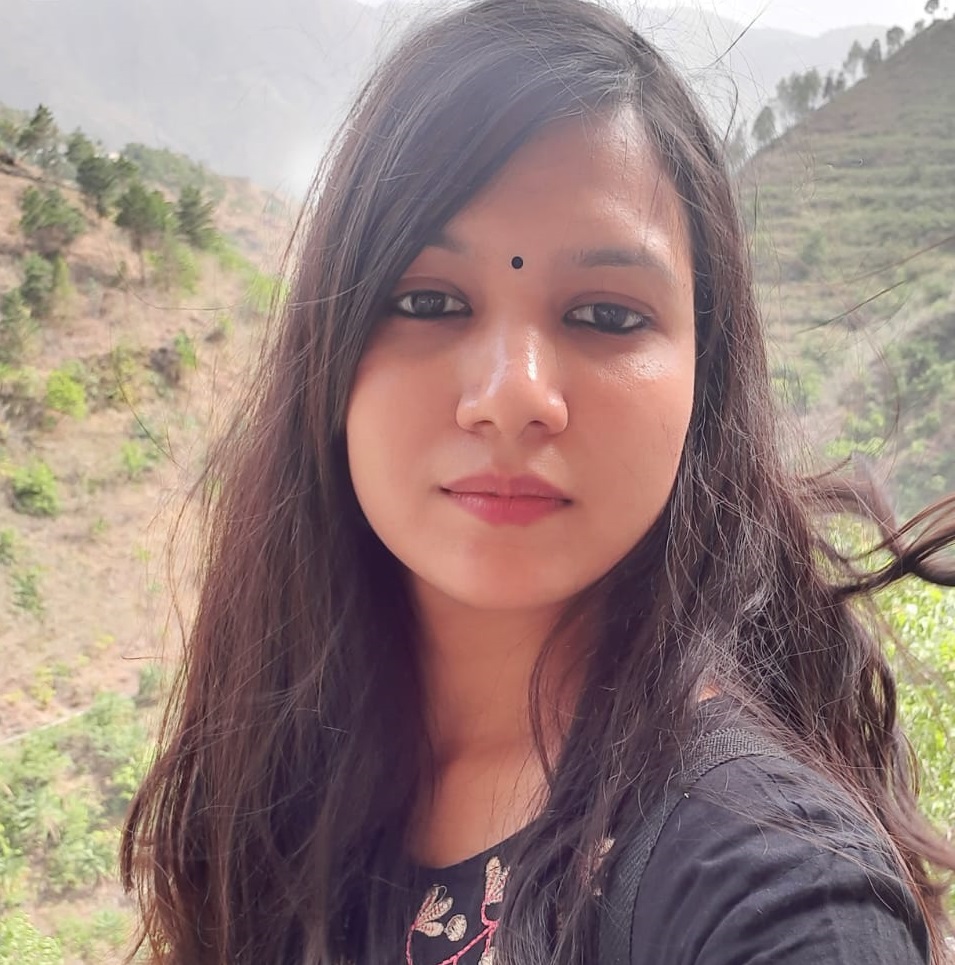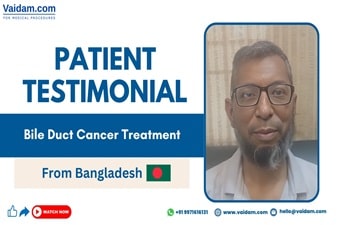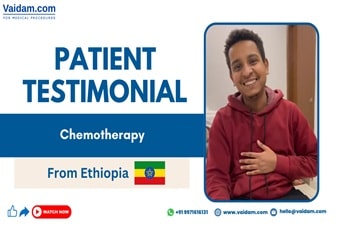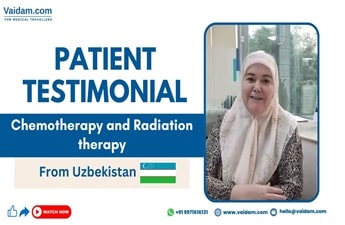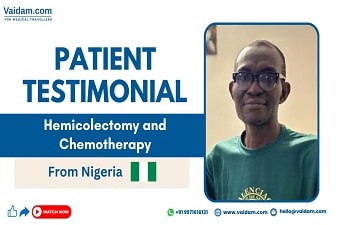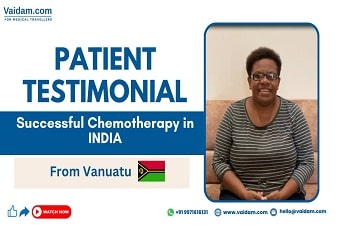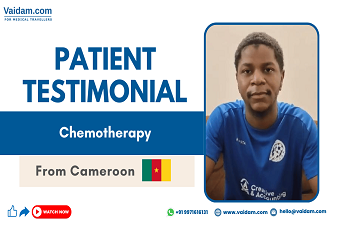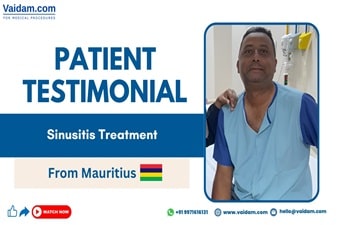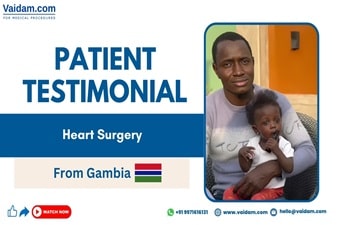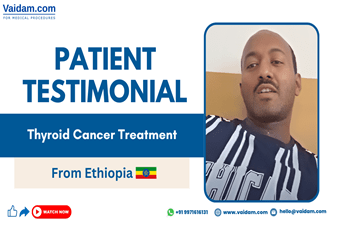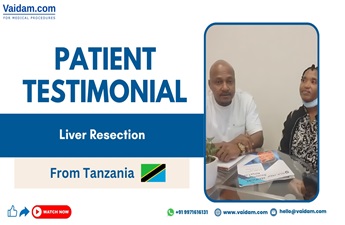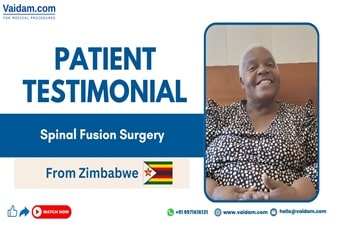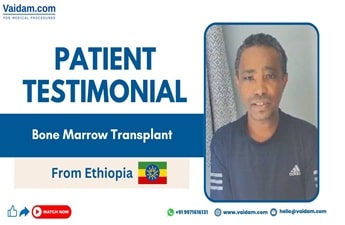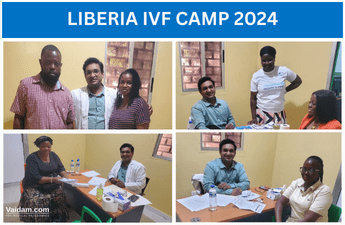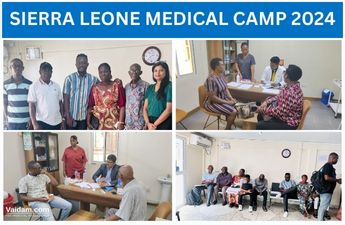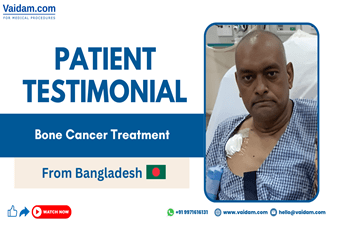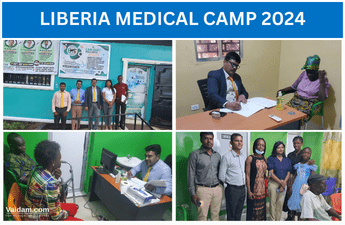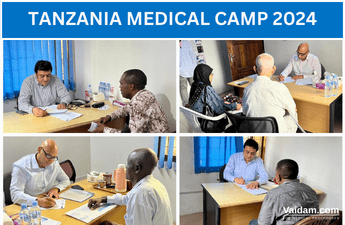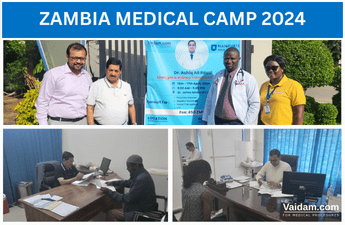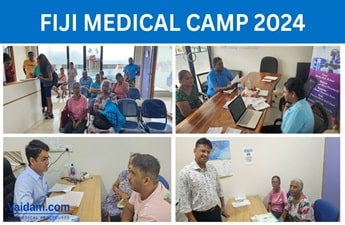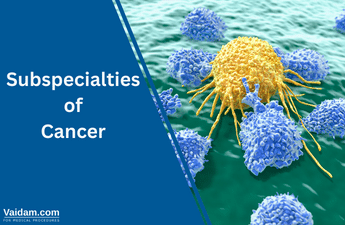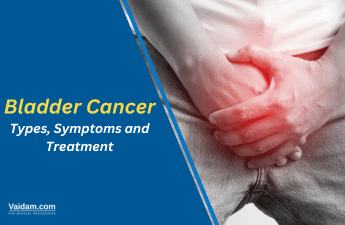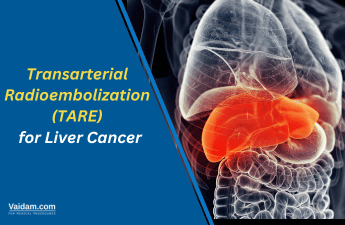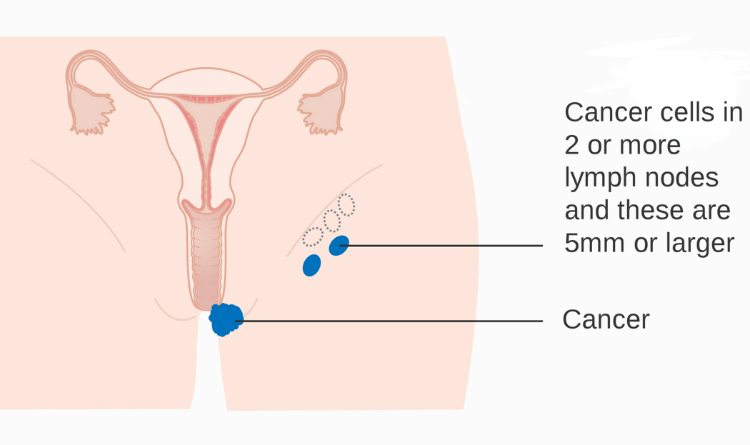
In India, 50-60% of all cancers among women are mainly related to the four organs; cervix uteri, breast, corpus uteri, and ovaries. Vulvar cancer is one of the rare and aggressive conditions representing about 4% of gynecologic malignancies and 0.6% of all cancers in women. It mainly affects elderly females, with the mean age at diagnosis being 55-60 years. It is mainly seen in postmenopausal women, and the age-specific incidence increases.
In the Indian scenario, vulvar cancer ranks 33, accounting for 0.26% of new cases and 0.02% of deaths from all sites. The most common site of vulvar cancer is labia majora. 90% of vulvar cancers are squamous cell types which could be further divided into keratinizing, basaloid, or verrucous types.
Vulvar cancer Treatment in India costs Rs. 88800 to Rs.118400.
Get in Touch with Medical Experts
An Overview of Vulvar Cancer
Vulvar cancer affects the external surface of a woman's genitalia. The vulva is the skin surrounding the vagina and urethra, including the clitoris and labia.
Vulvar cancer is usually identified as a lump or sore on the vulva that can lead to itching. While it can happen at any age, this type of cancer is generally detected in older women.
Types of Vulvar Cancer
Primary vulvar cancer is a type of cancer that starts in the vulva. Vulvar cancer originating from another body part and extending to the vulva is known as secondary vulvar cancer.
Vulvar cancer exists in various types:
- Squamous Cell Carcinoma: It affects the skin's flat outer layers and accounts for over 90% of all vulvar malignancies. It takes a long time for visible symptoms to appear.
- Vulvar Melanoma: It is responsible for around 5% of all vulvar malignancies. Melanoma appears as a dark patch of discoloration on the skin. This type of cancer has a significant risk of spreading to other body parts, known as metastasis. It may harm more younger females.
- Adenocarcinoma: Adenocarcinoma, accounting for a small percentage of malignancies, originates in glandular tissue, and the cells, in this case, line the vulva's glands.
- Sarcoma: It originates in the connective tissue and is a rare type of cancer. The majority of tumors in this category are cancerous.
- Verrucous Carcinoma: It is a form of squamous cell carcinoma that manifests itself as a slow-growing wart.
The prognosis is usually favorable if the cancer is detected early on before it spreads and if the patient receives timely and proper treatment of vulvar cancer.
Stages of Vulvar Cancer
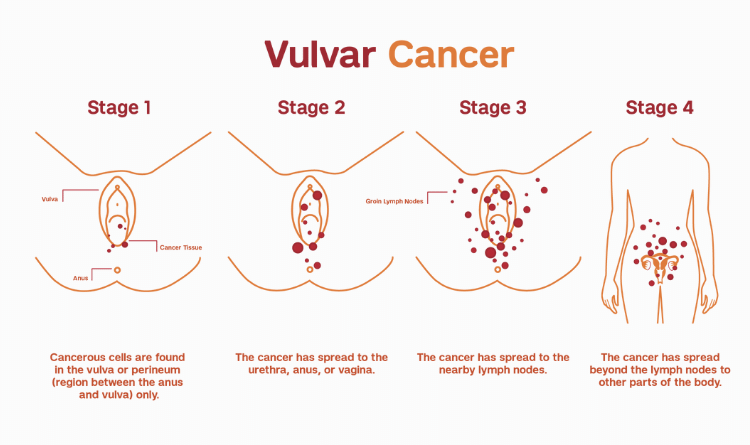
The stages of vulvar cancer are:
- In Stage I, the tumor is present on the vulva, and the cancer does not spread to the other parts of the lymph nodes and body.
- In Stage II, the tumors spread to nearby areas like the urethra, anus, and vagina.
- In Stage III, the lymph nodes are affected by cancer spread.
- In Stage IV A, the cancer spreads to lymph nodes, bladder, urethra, vagina, rectum, and pelvic bone.
- In Stage IV B, the distant body parts are affected by cancer spread.
Symptoms of Vulvar Cancer
Symptoms of vulvar cancer may include:
- Pain and tenderness
- Itching that doesn't go away
- Skin changes, such as thickening or color changes
- Bleeding that is not from menstruation
- A lump, wart-like bumps, or an open sore (ulcer)
Risk Factors of Vulvar Cancer
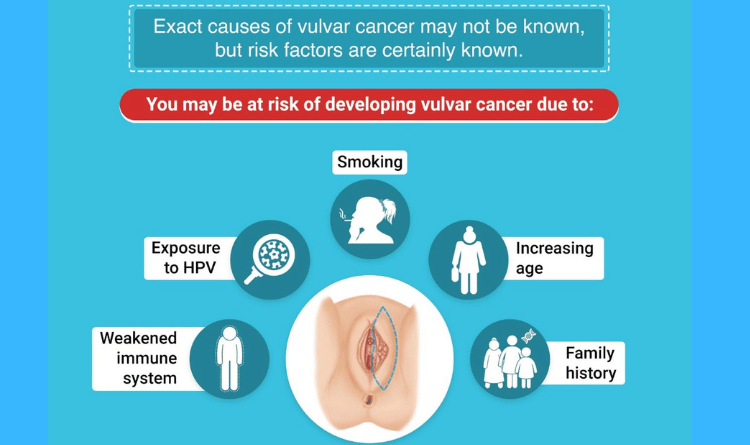
Although the exact causes of vulvar cancer are not known, certain factors increase your risk of the disease, including:
- Increasing age: The likelihood of developing vulvar cancer rises as the person ages, but it can happen at any stage of life.
- Exposure to human papillomavirus (HPV): HPV, a sexually transmitted infection, increases the risk of several cancers, including vulvar cancer.
- Weakened immune system: Individuals who have received organ transplants and those with weakened immune systems, such as HIV patients, are at a higher risk of developing vulvar cancer. This risk increases if they take medications that suppress the immune system.
- Smoking: Vulvar cancer is more likely to occur in people who smoke.
- History of precancerous conditions of the vulva: Precancerous conditions, such as vulvar intraepithelial neoplasia (VIN), increases the risk of vulvar cancer. Although most cases of VIN do not progress into cancer, a few may develop into invasive vulvar cancer.
- A skin condition involving the vulva: Vulvar skin can become thin and itchy by Lichen sclerosus, thus increasing the risk of vulvar cancer.
Management of Vulvar Cancer
Surgery
The management of early-stage vulvar cancer is predominantly surgery. The extent of the surgery, lymph node dissection, groin evaluation, and margins are essential issues that need individualization in the approach.
One of the following surgeries can be performed to treat vulvar cancer:
- Excision: To remove cancer, this process requires the removal of cancerous cells along with a small portion of normal tissue surrounding them.
- Wide local excision - This surgical procedure involves removing cancerous tissues and some of the surrounding normal tissues.
- Radical local excision - This surgical procedure removes cancer and a significant amount of healthy tissue surrounding it. Additionally, lymph nodes in the groin area may need to be removed.
- Vulvectomy: This procedure involves removing part of the vulva or the entire vulva.
- Modified radical vulvectomy - A surgical procedure that involves removing a significant portion of the vulva, along with the possibility of removing nearby lymph nodes.
- Radical vulvectomy - A surgical procedure that removes the entire vulva and nearby lymph nodes.
- Sentinel Node Biopsy: This procedure is used by surgeons to check for cancer spread in lymph nodes. It helps identify which lymph nodes are more likely to be cancerous so they can be removed. Cancer is unlikely to be present in any other lymph node if it is not found in these initial lymph nodes.
- Removing many lymph nodes: If cancer has spread to the lymph nodes, many lymph nodes may be removed to decrease the risk of cancer spreading to distant body areas. Surgery risks complications, such as problems with healing around the incision and infections. Removing lymph nodes may result in fluid retention and leg swelling (lymphedema).
- Pelvic exenteration: This surgical procedure involves the removal of the lower colon, rectum, bladder, cervix, vagina, ovaries, and nearby lymph nodes. To manage the flow of urine and stool, artificial openings (stomas) are created, which allow them to be collected in a bag outside the body.
Post-surgery, some patients may be given chemotherapy and/or radiation therapy to kill any cancerous cells left. Adjuvant therapy is administered after the surgery to lower the risk of cancer recurrence.
Radiotherapy
Radiotherapy can be considered the primary treatment modality for patients with early and advanced vulvar cancer. Usually, patients with early-stage vulvar cancer, negative groin status, and favorable prognosis do not require adjuvant treatment. But the treatment of locally advanced vulvar cancer may require further treatment modalities, such as radiotherapy and chemotherapy adjuvant to surgery, to improve local control rate and survival.
Lymph node (LN) metastases, large primary tumors, deep invasion, lymphovascular invasion, and close surgical margins are associated with an increased risk of recurrence. Radiotherapy alone or combined with LN dissection effectively prevents inguinal node recurrence in patients with squamous cell carcinoma of the vulva.
Chemotherapy
Chemotherapy can be an option for patients with advanced vulvar cancer, which has spread to other body areas. It is sometimes combined with radiation therapy to shrink large vulvar cancers, making it more likely that surgery will succeed.
Neoadjuvant Treatment in Advanced Vulvar Cancer
The concept of neoadjuvant chemoradiation followed by surgery seems promising and attractive in advanced vulvar carcinoma. Chemoradiation may downsize tumor volume and hence help achieve resectability of the tumor. Radical and mutilating surgeries such as anterior or posterior exenteration may also be avoided following this.
Immunotherapy
The treatment uses the patient's immune system to fight cancer. The body produces certain substances, which can be created in a lab to enhance, guide, or replenish the body's natural ability to fight cancer.
Why Choose India for the Treatment of Vulvar Cancer?
The emerging number of vulvar cancer cases in India has caught the attention of many medical infrastructures and facilities. Metro cities like Delhi NCR, Mumbai, Chennai, Bangalore, Hyderabad, etc., are where cancer facilities have seen a lot of development.
- India's Top Hospitals and Clinics for Cancer Treatment: Most cancer treatment hospitals in India are NABL, NABH, and ISO-accredited. These facilities have equipment with first-class infrastructure that provides a comfortable atmosphere for patients.
- Top Oncologists and Medical Facilities: Most Oncologists who provide vulvar cancer treatments are highly experienced and qualified specialists.
- Latest Technologies: Cancer hospitals in India now have new and advanced techniques to treat vulvar cancer. Indian hospitals commonly use robotic surgery, Proton therapy, and Cyberknife for cancer surgery. Proton therapy, an expensive technology, is only available in a few countries but is available in India.
- Cost of treatment: Apart from the factors mentioned above, treatment costs are highly affordable in India. The level of treatment provided is similar to those provided in other countries.
Top Oncologists in India Providing Vulvar Cancer Treatment
- Dr. Ramesh Sarin: She is one of the most highly-experienced Surgical Oncologists with an experience of over 40 years. She is keenly interested in sentinel node biopsy and breast reconstructive surgeries.
- Dr. Rajeev Agarwal: He is a Surgical Oncologist with over 32 years of experience. He introduced the practice of surgical oncology and the concept of organ-based specialization in oncology to Northern India. He specializes in sentinel node biopsy.
- Dr. Vedant Kabra: He is a Surgical Oncologist with over 25 years of experience. He has experience with over 12000 cancer surgeries and has successfully performed complex onco-surgical procedures, including robotic surgery for cancer.
- Dr. Surender Kumar Dabas: He is a highly experienced Surgical Oncologist & Robotic Surgery Specialist with over 20 years of experience. His special areas of interest are Robotic, Scarless Head & Neck Surgery, Robotic Esophageal & Lung Cancer Surgery, Robotic Pancreatic & Colorectal Surgery, and Robotic Prostate, Bladder & Kidney Cancer Surgery.
- Dr. Yogesh Kulkarni: He is a Surgical Oncologist with over 22 years of experience. He has performed over 1000 complex gynecological cancer surgeries to date.
Summing Up
When looking for cancer treatment options, the patient aims to achieve effective results while improving their quality of life and recovering quickly. If you can find all of these benefits in India at a significantly lower cost than in other countries, you may choose to stay within the country for medical care.
India now offers medical facilities comparable to top-notch centers, with skilled Oncologists who can provide treatment plans that meet your needs and expectations.

